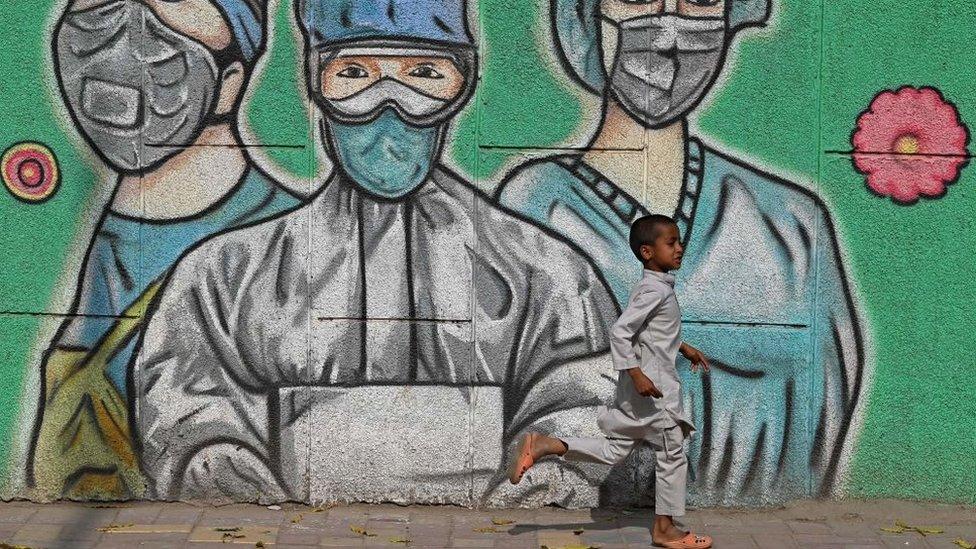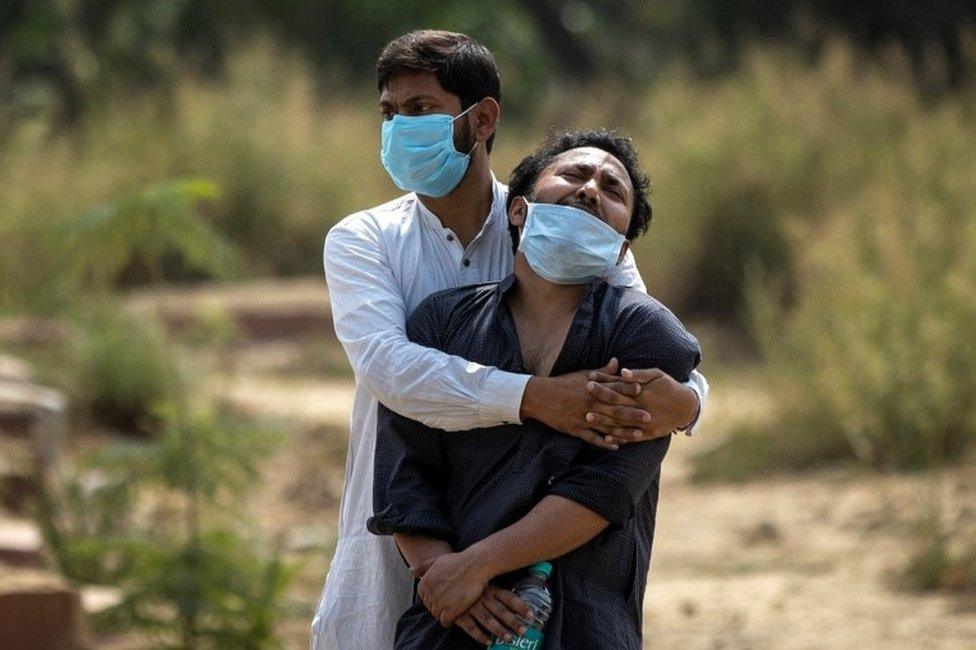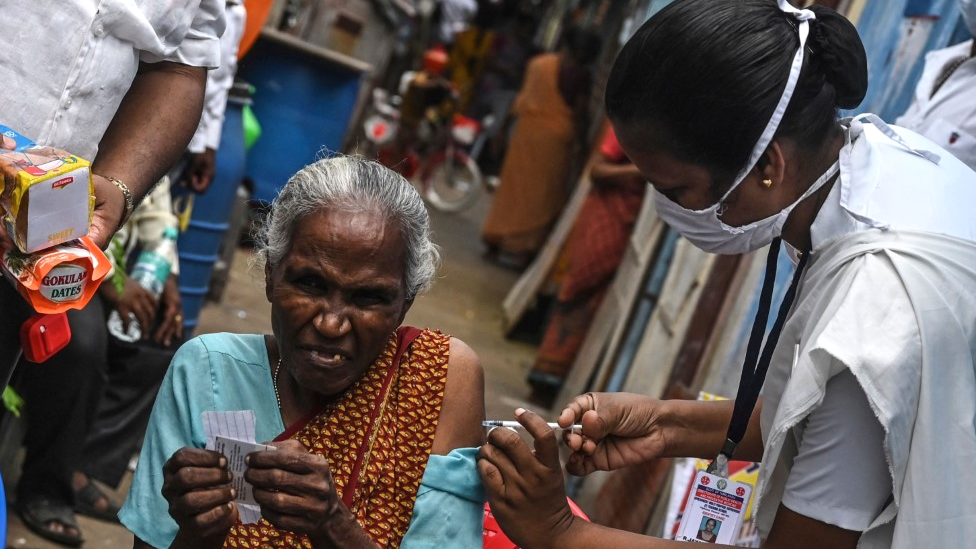India coronavirus: Delhi to gradually come out of Covid lockdown
- Published

The capital has been in a lockdown since 19 April
India's capital Delhi is set to gradually end its weeks-long lockdown as the number of new Covid cases continue to drop.
From Monday, factories will be allowed to operate and construction activities will also resume.
The city saw peaks of 25,000 cases in April but it's been reporting less than 1,500 daily cases in the past few days.
But officials warned that the pandemic was not over yet and urged people to keep following safety protocols.
The announcement comes after the city witnessed a devastating second wave. People struggled to get hospital beds, oxygen and medicines. Many died without getting proper treatment and oxygen. The city's crematoriums also ran out of space.
Officials said more details about the phased easing of the lockdown will be released later. Delhi Chief Minister Arvind Kejriwal said unlocking was important to ensure construction workers and daily-wage labourers were able to earn money.
"At a meeting of Delhi Disaster Management Authority on Friday, it was decided that the lockdown be lifted gradually. We shouldn't have a situation where people escape the virus only to die from hunger," Mr Kejriwal said.

Crematoriums and mortuaries in Delhi were overwhelmed as deaths rose steadily
Many migrant workers come to the capital from various states across India to find work in the construction sector and in factories. The lockdown, which started on 19 April, meant that these workers were not able to find work.
Mr Kejriwal, however, warned that the battle was not over yet.
"We have with great difficulty controlled the virus. But we have not yet won. We should not lose the gains made by the lockdown so far. The situation is under control for now," Mr Kejriwal said, adding that if the rate of infections increase again, the unlocking process will be put on hold.
"So everyone must be cautious," added.
Other Indian states are also reporting a drop in the number of cases but experts warn that even if the second wave appears to be waning for India as a whole, it is by no means true for all states.
Bhramar Mukherjee, a University of Michigan biostatistician who has been closely tracking the pandemic. told the BBC's Soutik Biswas that "the notion that the peak has passed may give false sense of security to everyone when their states are in fact entering the crisis mode".
"We must make it clear that no state is safe yet."
Suhani and Prabhpreet are part of a team who find and verify what resources are available for families in need

Related topics
- Published31 December 2021

- Published26 May 2021